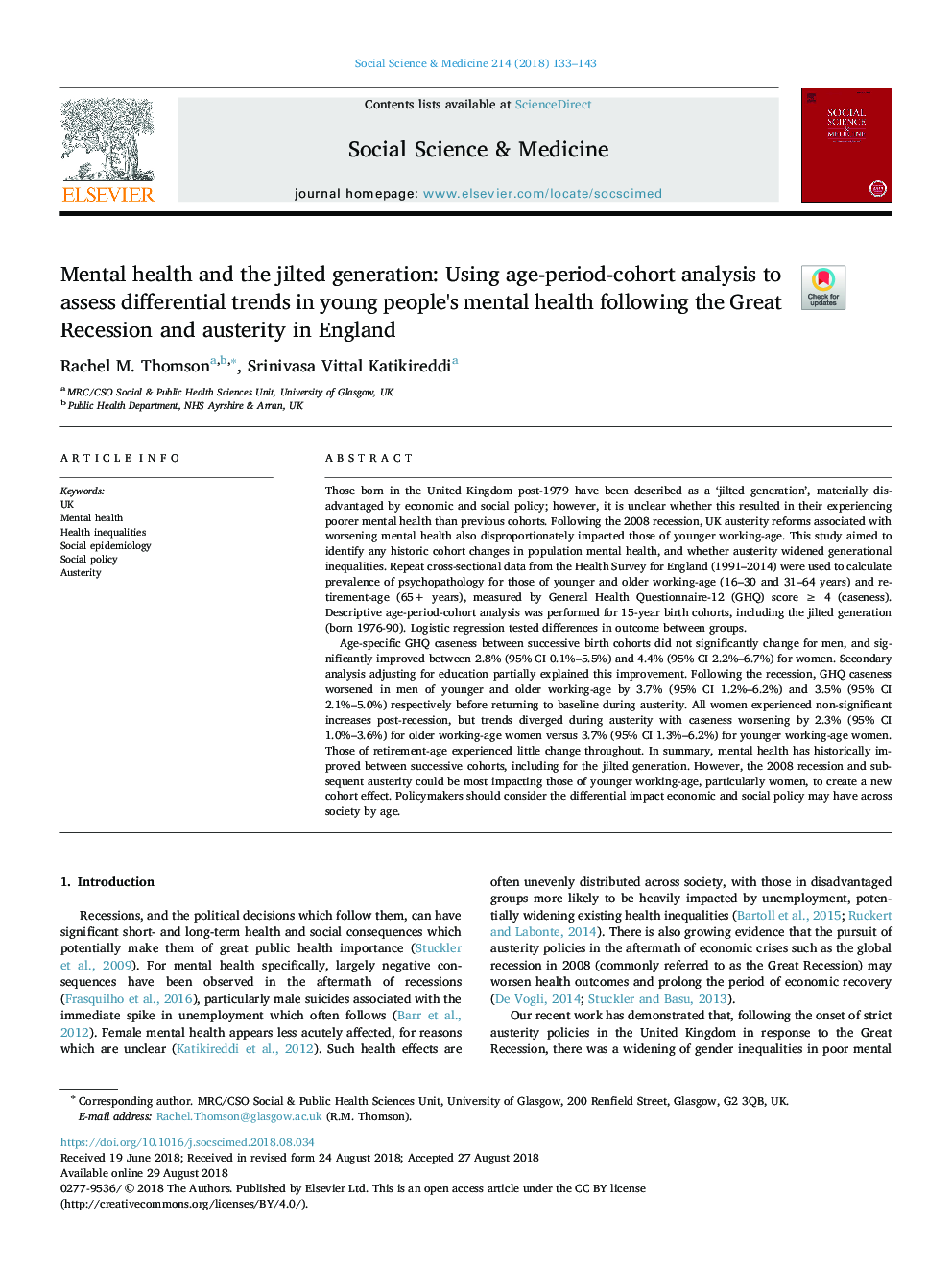| Article ID | Journal | Published Year | Pages | File Type |
|---|---|---|---|---|
| 10127657 | Social Science & Medicine | 2018 | 11 Pages |
Abstract
Age-specific GHQ caseness between successive birth cohorts did not significantly change for men, and significantly improved between 2.8% (95% CI 0.1%-5.5%) and 4.4% (95% CI 2.2%-6.7%) for women. Secondary analysis adjusting for education partially explained this improvement. Following the recession, GHQ caseness worsened in men of younger and older working-age by 3.7% (95% CI 1.2%-6.2%) and 3.5% (95% CI 2.1%-5.0%) respectively before returning to baseline during austerity. All women experienced non-significant increases post-recession, but trends diverged during austerity with caseness worsening by 2.3% (95% CI 1.0%-3.6%) for older working-age women versus 3.7% (95% CI 1.3%-6.2%) for younger working-age women. Those of retirement-age experienced little change throughout. In summary, mental health has historically improved between successive cohorts, including for the jilted generation. However, the 2008 recession and subsequent austerity could be most impacting those of younger working-age, particularly women, to create a new cohort effect. Policymakers should consider the differential impact economic and social policy may have across society by age.
Related Topics
Health Sciences
Medicine and Dentistry
Public Health and Health Policy
Authors
Rachel M. Thomson, Srinivasa Vittal Katikireddi,
